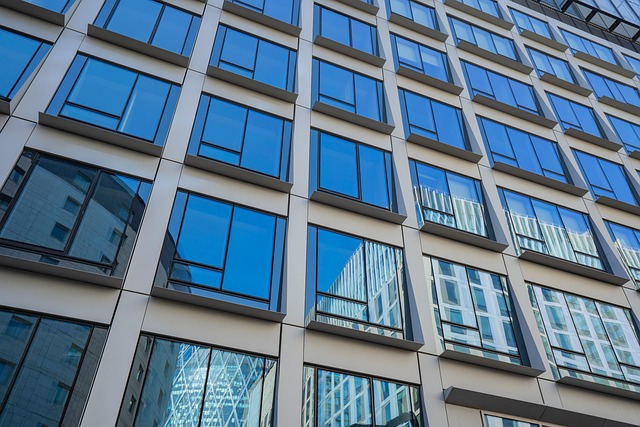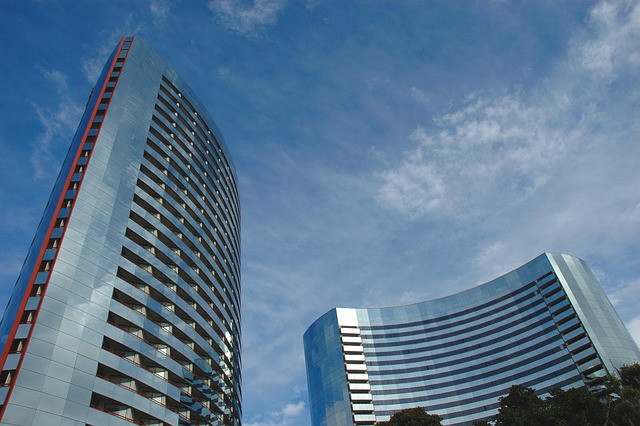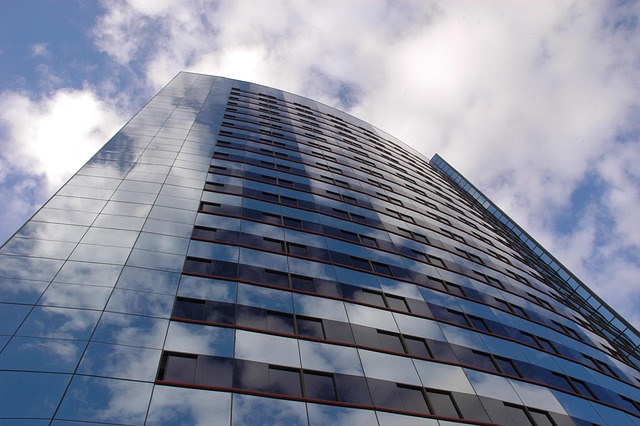Corrosion is a key challenge for commercial gas hot water heaters, driven by constant operation, temperature fluctuations, and chemical exposure. Stainless steel construction offers superior durability and corrosion resistance in various applications from restaurants to institutional settings. Technological advancements like condensing technology enhance efficiency and minimize environmental impact. Regular maintenance, including periodic inspections and flushing, extends lifespan and optimizes energy efficiency through advanced condensing technology.
Commercial gas hot water heaters are essential for businesses, but they face relentless corrosion challenges. This article delves into the intricate world of stainless steel as a corrosion-resistant material, exploring its role in these systems. We dissect design features that bolster corrosion resistance and maintenance strategies to extend their lifespan. Understanding these factors is crucial for ensuring optimal performance and longevity of commercial gas hot water heaters.
- Understanding Corrosion in Commercial Gas Heaters
- Material Science: The Role of Stainless Steel
- Design Features for Enhanced Corrosion Resistance
- Maintenance Strategies to Prolong Lifespan
Understanding Corrosion in Commercial Gas Heaters

In the context of commercial gas hot water heaters, understanding corrosion is paramount to ensuring optimal performance and longevity. Corrosion, a natural process where metals react with substances in their environment, can significantly impact these systems. Commercial hot water systems, due to their constant operation and exposure to varying temperatures and chemicals, are particularly susceptible to corrosion, especially in harsh environments. Gas fired heating, while efficient, introduces elements like moisture and oxygen that can accelerate corrosion rates.
High capacity water heaters, tankless gas systems, and storage tank heaters all face unique corrosion challenges. Restaurant hot water demands require robust systems capable of withstanding frequent use and exposure to cleaning chemicals. Hotel water heating systems need to balance efficiency with consistent performance across multiple rooms and facilities. Institutional systems, catering to schools, hospitals, and commercial kitchens, often incorporate condensing technology for energy-efficient heating while managing high demand. Energy efficient heating solutions are increasingly important, as they not only reduce operational costs but also mitigate the environmental impact of corrosion-related maintenance and replacement.
Material Science: The Role of Stainless Steel

Stainless steel is an indispensable material in the manufacturing of commercial gas hot water heaters due to its exceptional properties that enhance durability and corrosion resistance. Its molecular structure, characterized by high chromium content, forms a protective layer known as passivation, which prevents oxidation and rust formation—a significant advantage in aggressive environments. This natural barrier makes stainless steel highly suitable for commercial hot water systems, including gas fired heating applications, where it can withstand constant exposure to moisture and varying temperatures.
In the context of high-capacity water heaters, tankless gas systems, storage tank heaters, restaurant hot water needs, hotel water heating, and institutional systems, stainless steel plays a pivotal role in ensuring longevity and performance. Moreover, advancements such as condensing technology and energy-efficient heating methods incorporate this material to optimize efficiency and reduce environmental impact.
Design Features for Enhanced Corrosion Resistance

Modern commercial gas hot water heaters incorporate several design features to enhance their corrosion resistance, ensuring longevity in demanding environments. One key aspect is the use of high-quality stainless steel construction, which forms a robust barrier against corrosive elements. This material choice is particularly beneficial for tanks and heating elements exposed to moisture and varying temperature fluctuations.
Additionally, advanced technologies like condensing and efficient gas firing play a role. Condensing systems extract heat from exhaust gases, reducing energy wastage and preventing the accumulation of corrosive byproducts. Energy-efficient heating mechanisms not only lower operational costs but also minimize the risk of corrosion by reducing the time spent at elevated temperatures, which can accelerate metal degradation in traditional storage tank heaters. These innovations contribute to the overall durability of commercial hot water systems, making them suitable for demanding applications in restaurants, hotels, and institutional settings.
Maintenance Strategies to Prolong Lifespan

Regular maintenance is key to extending the lifespan of your commercial gas hot water heater. A well-maintained system will not only enhance its durability but also ensure optimal performance and energy efficiency. One effective strategy is to schedule periodic inspections by qualified professionals who can identify potential issues early on, such as leaks or corrosion. These experts can also clean the heater’s internal components, including the heat exchanger and burners, which are prone to mineral buildup over time.
Additionally, proper flushing of the system at regular intervals is essential, especially in regions with hard water. This process involves draining and rinsing the heater to remove accumulated sediments and scale, preventing them from affecting the heating element’s efficiency and potentially leading to premature failure. By incorporating these maintenance practices into your facility management routine, you’ll be well on your way to keeping your commercial hot water systems running smoothly, ensuring reliable restaurant hot water, hotel water heating, or institutional system needs for years to come, while also taking advantage of energy-efficient heating through advanced condensing technology.
Commercial gas hot water heaters, built with stainless steel, offer superior corrosion resistance due to their robust material science and strategic design features. Regular maintenance is key to maximizing their lifespan, ensuring these heaters remain a reliable and efficient solution for businesses. By prioritizing corrosion protection, commercial users can enjoy the benefits of consistent hot water supply without frequent replacements.
